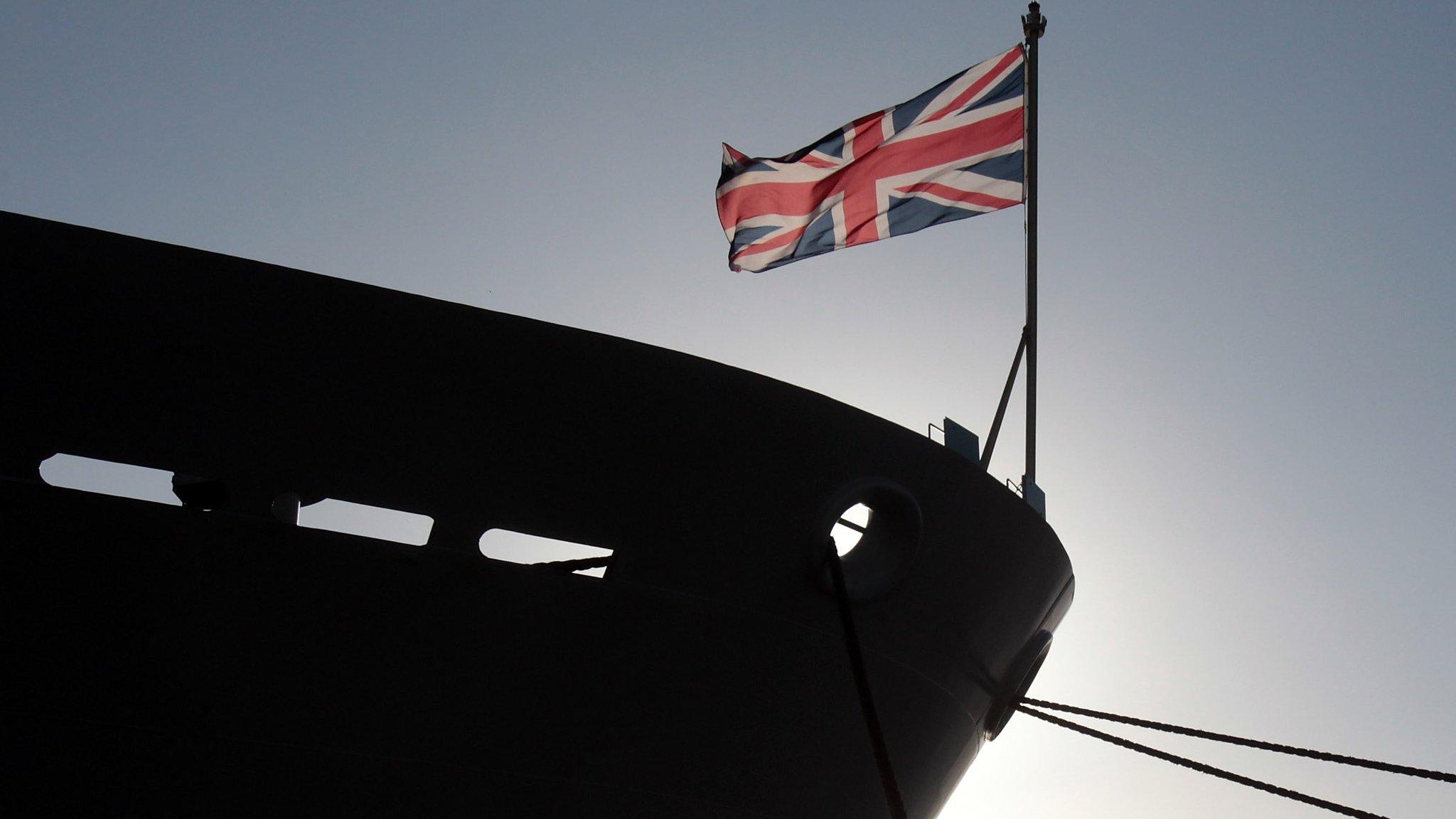Marine cuts would 'undermine UK security'
- Published
Defence Select Committee chairman Julian Lewis explains why the Navy's landing ships are a "world-beating capability"
Cutting the number of Royal Marines and the ships they use to carry out beach landings would significantly undermine UK security, MPs have warned.
A government review which began last year has proposed axing up to 2,000 marines and the Royal Navy's two specialist landing ships.
But a Commons Defence Select Committee report, external said such cuts would be "militarily illiterate".
A MoD spokesman said "protecting the UK will always be our priority".
The Tory-led committee's strongly worded report - called Sunset for the Royal Marines? - warns the rumoured cuts would weaken one of Britain's elite fighting forces.
"Given the disproportionate contribution the Royal Marines make to defence and the sheer range and versatility of their military skills, both they and the country's security would be significantly undermined," they said.
They also said slashing its two amphibious assault ships HMS Albion and HMS Bulwark - used to carry out beach landings - would "put the interests of this country at serious risk".
The former head of the Royal Navy, Lord West, said the UK's "capability will have been cut by a half" since 2010 if the cuts go ahead.
"I don't think the British people realise what cuts the military have had," he said.

HMS Bulwark was involved in migrant rescue missions in the central Mediterranean
Theresa May and Defence Secretary Gavin Williamson are understood to have both rejected the cost-cutting proposals before Christmas, but concern over funding remains.
Last month, Mr Williamson announced a new review, the Defence Modernisation Programme, focusing solely on military defence. Mr Williamson has indicated he will demand more money if the review deems it necessary.
"Gavin Williamson deserves credit for seizing back control of the defence dimension of the NSCR (National Security Capability Review) process," said Defence Select Committee chair Julian Lewis. "But, ultimately, he will fail without extra funding from the Treasury."
If the ships were lost "the heart would be torn out of our amphibious capability", Mr Lewis added.
The Tory MP told the BBC: "The Treasury has got to cough up."
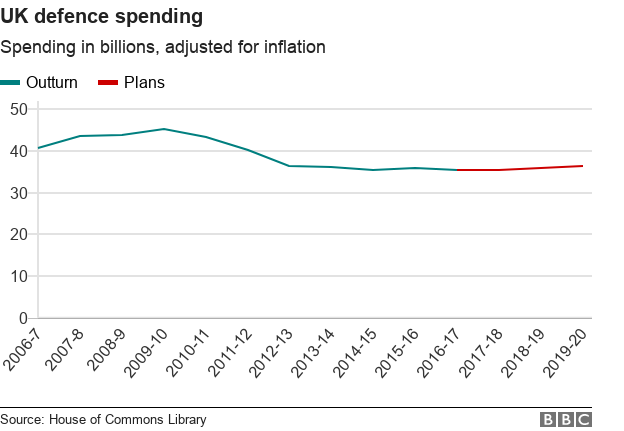
In December, analysis by the House of Commons Library, external found that between 2010 and 2015 the Ministry of Defence's (MoD) budget had fallen by £8bn in real terms.
Since then, spending has stabilised and in the last financial year (April 2016 - March 2017), £35.3bn was spent on defence.
In 2016, the UK had the fifth biggest defence budget - the highest of all EU countries - according to an international military study, external.
Cuts cause 'embarrassment'
Mr Lewis added that recent years had seen "new and intensified threats" and the UK should not be "deleting one of our world-beating capabilities".
The MPs' report also said cuts to the Royal Marines since 2011 had already led to "a tangible drop in morale" and "particular embarrassment" during exercises with the UK's allies.
In response to the report, a Ministry of Defence spokesman said the Royal Marines "play a vital role" in defending the country.
"Just last week we launched the Modernising Defence Programme to strengthen our Armed Forces in the face of intensifying threats," he said.
"Our brand new aircraft carrier, HMS Queen Elizabeth, is central to our efforts to build an Armed Forces fit for the future and is a symbol of our intent to remain a truly Global Britain."
The £3.1bn HMS Queen Elizabeth was unveiled in 2017. It later reported leaks during its first sea trial.
- Published22 January 2018

- Published19 January 2018
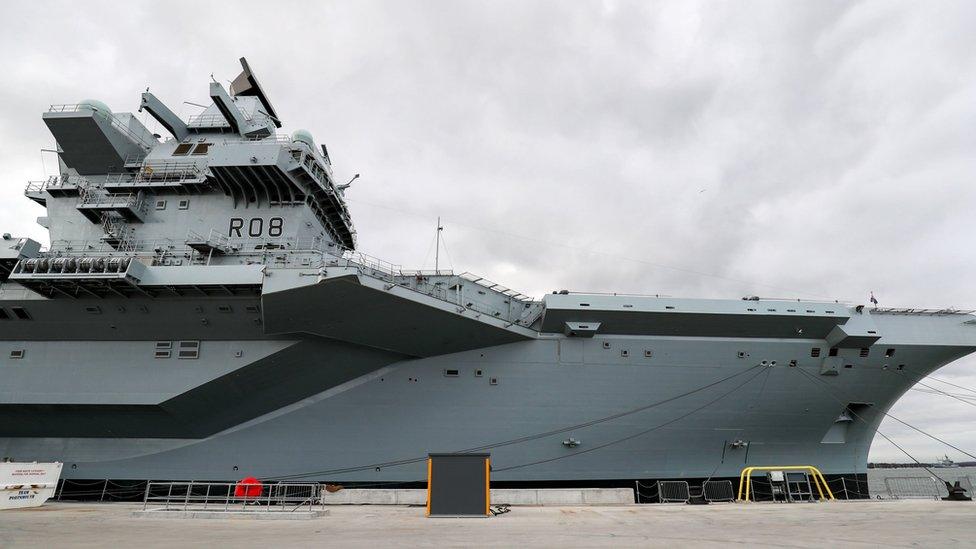
- Published22 March 2021
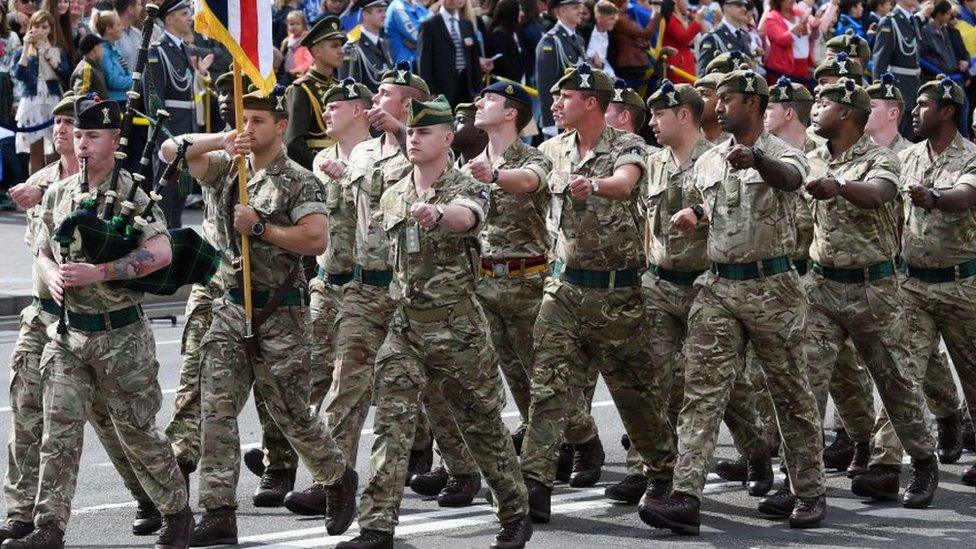
- Published17 December 2017
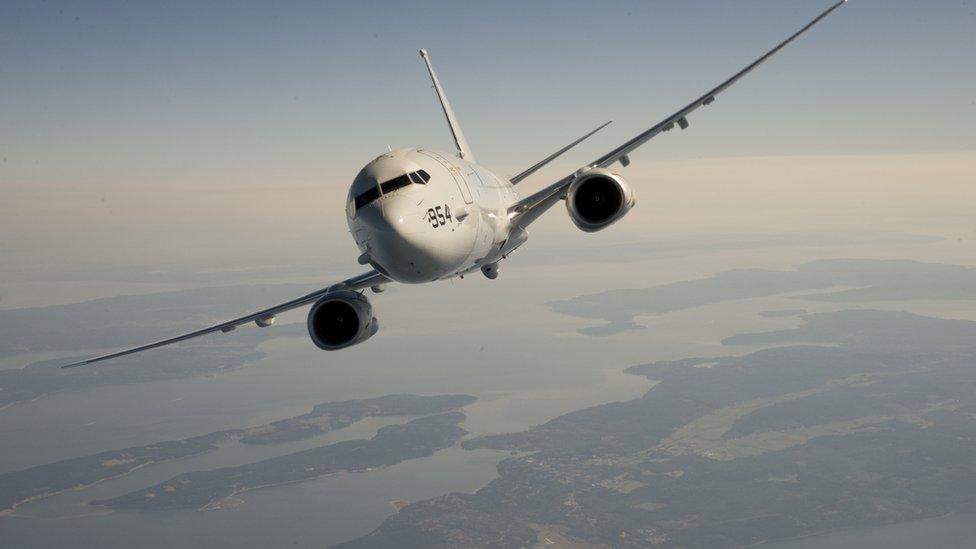
- Published5 October 2017
